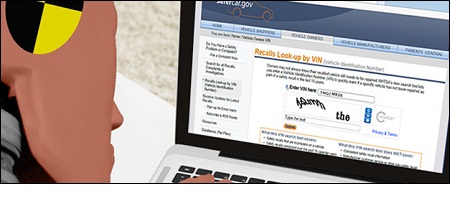
|
|

|
|
| May 2, 2024 |
|
Carfax: 36 million cars have incomplete recall work 
Consumers need to do their part by participating fully in recalls. If you get a notice, take it seriously.
Too many car owners donít respond to them, so the free safety fix is never done. A 2012 NHTSA-≠sponsored study found that 21 to 25 percent of the problems covered by recall notices between 2006 and 2010 remained unrepaired. Carfax, which tracks used-car vehicle histories, calculated that more than 36 million cars now on the road have uncompleted recall work. In some cases, owners donít know thereís a problem because they bought their car used and the previous owner didnít get the work done. Other times, automakers lose track of who owns the car because it has been sold and resold a few times. But a lot of people simply disregard the recall letter, especially if their car doesnít show signs of the problem described. Thatís a mistake, just like ignoring a fire alarm in your building because you canít smell smoke. ďYouíve got to pay attention to all [recalls],Ē Rosekind says. ďA recall means itís a safety issue. But weíre looking at increasing our communications to help people understand them more clearly. We want them to be safe, but theyíve got to take action as well.Ē Itís easy to find out whether your car has an unresolved recall repair. With your vehicle identification number (VIN) in hand, go to your automakerís website or to NHTSAís site, at safercar.gov; punch in the number; and see whether recall work is pending. (You can find the 17-digit VIN on the car, its registration paperwork, or your insurance card.) Or call any franchised dealer for your brand. More information is at ConsumerReports.org/carrecalls. Second, if you notice that something seems wrong with your vehicle, say something. Get involved. If your car develops a problem that you think could put you or someone else in danger, such as a fuel leak or a serious steering or braking defect thatís not related to wear and tear, report it to the automakerís customer-service department and NHTSAís safety hotline (at safercar.gov). Automakers and the government depend on consumer complaints to find out about safety concerns and do something about them. If no one reports a problem, itís as if it never existed. Of course, you should get your car fixed if it seems unsafe to drive. If the repair is later covered by a recall, youíll probably be reimbursed for the expense that the dealer charged for the repair. (Source: Consumer Reports) Story Date: February 26, 2015
|